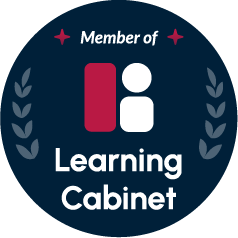Educate, enthuse and empower with eKidz!
The educational app that incorporates AI, supporting children anytime, anywhere!
eKidz is an interactive and engaging tool designed to develop basic reading skills and language learning. Try it for free!

Automated diagnosis using AI
AI precisely analyzes reading at the sound level, determining each child's proficiency. It highlights errors and tracks progress, taking individual characteristics into account.
Integrated reading program with the support of AI
eKidz automatically and intelligently diagnoses reading, assesses success levels, identifies uncertainties and individual difficulties and suggests remedial action while recording progress - all in one app!


Individual and personalized learning
Regardless of the child's reading level or ability eKidz, supports their systematic and competent language development in a scaffollded manner, progressing and motivating them step-by-step. Each child learns and achieves goals at their own pace.
Methodology based on scientific evidence and developed by linguists and expert educators.
A differentiated reading program with 12 levels of complexity provides systematic progress.
Comprehension tests and creative tasks assess knowledge from basic to advanced levels.
Scientifically substantiated, tried, tested and recommended by teachers, learners and parents around the world!

A safe ad-free environment for children aged 5 and above.
Data protection for families and educational institutions.
Data protection for families and educational institutions.
Suitable for individual and group lessons, in the classroom, in the library and at home.
Press reactions
|
To be able to individually assess and optimally support each child in learning to read.
|
| Read full article |
|
The differentiated adaptive feedback in the eKidz app is particularly beneficial for learning as it fosters personalized growth.
|
| Read full article |
|
eKidz leverages AI assessment and reading scaffolding features to provide personalized support, enabling young students to progress individually.
|
| Read full article |
|
From AI to clothing repair, these startups show migrants' tech potential
|
| Read full article |
|
6 German Ai startups beyond ChatGPT that you should know. eKidz is one of them.
|
| Read full article |
|
The Ministry of Education of Lower Saxony presents eKidz.eu for teaching German to teachers.
|
| Read full article |
|
Presentation of eKidz.eu, the first mobile program for teaching reading and speech development in Ukrainian and English approved by the Ministry of Education of Ukraine.
|
| Read full article |
|
eKidz has been selected as one of the top 5 finalists for the 2022 EdTechX Startup Award!
|
| Read full article |
|
Can tech solve the global education crisis?
|
| Read full article |
|
Women belong in tech – celebrating innovation in our industry
|
| Read full article |
|
Reading apps are under the spotlight! Individual learning success is linked to the quality teaching and the tools used.
|
| Read full article |
|
The theme for reading day 2021 is "friendship and solidarity"! Together with Stiftung Lesen, we focus on promoting social wellbeing for a healthier and happy society.
|
| Read full article |
|
Prof Dr. Michael Ritter and Dr. Alexandra Ritter of the department for schooling and teacher training at the MLU aimed to evaluate the impact of digitalisation on reading habits and on the quality of reading materials- e.g. the process of reading to children and their active or passive role within that process.
|
| Read full article |
|
15 EdTech start-ups and SMEs were selected to enter the EU incubation programme
|
| Read full article |
|
5 startup companies present their technology innovation to a lively online audience from the world language education community.
|
| Read full article |
|
Assisting women-led tech companies to co-build, co-market and co-sell with Microsoft and their distribution channels
|
| Read full article |
|
Webinar presentation of applications to promote reading fluency. eKidz.eu among the leading digital tools for primary school.
|
| Read full article |
|
Announcement of the launch of the collaboration of the German bookstore chain Hugendubel with eKidz.eu.
|
| Read full article |
|
Among the functions of eKidz.eu we highlight the narration aloud. Children can read while listening to the narration in karaoke mode, which helps them to train their reading comprehension and fluency.
|
| Read full article |
|
With its books sequenced by levels of difficulty and comprehension exercises, eKidz.eu is specially designed for children to work independently.
|
| Read full article |
|
With the secure, ad-free reading app „eKidz.eu“ children aged 6 to 10 can practise reading independently. The attractively illustrated texts are divided into nine levels of difficulty and are based around topics from the general knowledge teaching of the primary school. In instruction, whole day, as well as spare time, the app can be applied to individual reading training iun a versatile way. It is suitable both for native speakers with additional reading needs and for children who learn German as a second language. Teachers and parents can monitor the child's reading progress using a diagnostic tool.
|
| Read full article |
|
German for early readers! The eKidz.eu app presents an easy way to learn how to read in a natural, conversational way.
|
| Read full article |
|
The eKidz.eu app is recommended in the magazine "Barrier Free Communication" from TJFBG (on pg. 16) - The TJFBG primarily delivers technical and scientific content to children, youth and multipliers across Germany.
|
| Read full article |
|
Entertaining and variety-packed reading development app for early readers, first-time readers and for children with reading difficulties.
|
| Read full article |
|
A well-designed and child-friendly app that is intuitive to use and can be used in different contexts.
|
| Read full article |
|
This new [German] reading development app goes significantly beyond existing reading trainer apps.
|
| Read full article |
|
App of the week for iPad.
|
| Read full article |
|
I consider this app to be helpful for expats too.
|
| Read full article |
|
Who could have imagined such a lengthy “school break” at the beginning of March? asks entrepreneur Nataliya Tetruyeva, developer of a innovative educational app.
|
| Read full article |
|
Take some “learning to read at home” tips from our expert.
|
| Read full article |
|
Promoting Reading in Diverse Classrooms: Easy with eKidz!
|
| Read full article |
|
Introducing the 2023 GSV Cup Elite 200 — the World’s Most Disruptive Startups in Digital Learning and Workforce Skills
|
| Read full article |
|
To be able to individually assess and optimally support each child in learning to read.
|
| Read full article |
|
The differentiated adaptive feedback in the eKidz app is particularly beneficial for learning as it fosters personalized growth.
|
| Read full article |
|
eKidz leverages AI assessment and reading scaffolding features to provide personalized support, enabling young students to progress individually.
|
| Read full article |
|
From AI to clothing repair, these startups show migrants' tech potential
|
| Read full article |
|
6 German Ai startups beyond ChatGPT that you should know. eKidz is one of them.
|
| Read full article |
|
The Ministry of Education of Lower Saxony presents eKidz.eu for teaching German to teachers.
|
| Read full article |
|
Presentation of eKidz.eu, the first mobile program for teaching reading and speech development in Ukrainian and English approved by the Ministry of Education of Ukraine.
|
| Read full article |
|
eKidz has been selected as one of the top 5 finalists for the 2022 EdTechX Startup Award!
|
| Read full article |
|
Can tech solve the global education crisis?
|
| Read full article |
|
Women belong in tech – celebrating innovation in our industry
|
| Read full article |
|
Reading apps are under the spotlight! Individual learning success is linked to the quality teaching and the tools used.
|
| Read full article |
|
The theme for reading day 2021 is "friendship and solidarity"! Together with Stiftung Lesen, we focus on promoting social wellbeing for a healthier and happy society.
|
| Read full article |
|
Prof Dr. Michael Ritter and Dr. Alexandra Ritter of the department for schooling and teacher training at the MLU aimed to evaluate the impact of digitalisation on reading habits and on the quality of reading materials- e.g. the process of reading to children and their active or passive role within that process.
|
| Read full article |
|
15 EdTech start-ups and SMEs were selected to enter the EU incubation programme
|
| Read full article |
|
5 startup companies present their technology innovation to a lively online audience from the world language education community.
|
| Read full article |
|
Assisting women-led tech companies to co-build, co-market and co-sell with Microsoft and their distribution channels
|
| Read full article |
|
Webinar presentation of applications to promote reading fluency. eKidz.eu among the leading digital tools for primary school.
|
| Read full article |
|
Announcement of the launch of the collaboration of the German bookstore chain Hugendubel with eKidz.eu.
|
| Read full article |
|
Among the functions of eKidz.eu we highlight the narration aloud. Children can read while listening to the narration in karaoke mode, which helps them to train their reading comprehension and fluency.
|
| Read full article |
|
With its books sequenced by levels of difficulty and comprehension exercises, eKidz.eu is specially designed for children to work independently.
|
| Read full article |
|
With the secure, ad-free reading app „eKidz.eu“ children aged 6 to 10 can practise reading independently. The attractively illustrated texts are divided into nine levels of difficulty and are based around topics from the general knowledge teaching of the primary school. In instruction, whole day, as well as spare time, the app can be applied to individual reading training iun a versatile way. It is suitable both for native speakers with additional reading needs and for children who learn German as a second language. Teachers and parents can monitor the child's reading progress using a diagnostic tool.
|
| Read full article |
|
German for early readers! The eKidz.eu app presents an easy way to learn how to read in a natural, conversational way.
|
| Read full article |
|
The eKidz.eu app is recommended in the magazine "Barrier Free Communication" from TJFBG (on pg. 16) - The TJFBG primarily delivers technical and scientific content to children, youth and multipliers across Germany.
|
| Read full article |
|
Entertaining and variety-packed reading development app for early readers, first-time readers and for children with reading difficulties.
|
| Read full article |
|
A well-designed and child-friendly app that is intuitive to use and can be used in different contexts.
|
| Read full article |
|
This new [German] reading development app goes significantly beyond existing reading trainer apps.
|
| Read full article |
|
App of the week for iPad.
|
| Read full article |
|
I consider this app to be helpful for expats too.
|
| Read full article |
|
Who could have imagined such a lengthy “school break” at the beginning of March? asks entrepreneur Nataliya Tetruyeva, developer of a innovative educational app.
|
| Read full article |
|
Take some “learning to read at home” tips from our expert.
|
| Read full article |
|
Promoting Reading in Diverse Classrooms: Easy with eKidz!
|
| Read full article |
|
Introducing the 2023 GSV Cup Elite 200 — the World’s Most Disruptive Startups in Digital Learning and Workforce Skills
|
| Read full article |




















